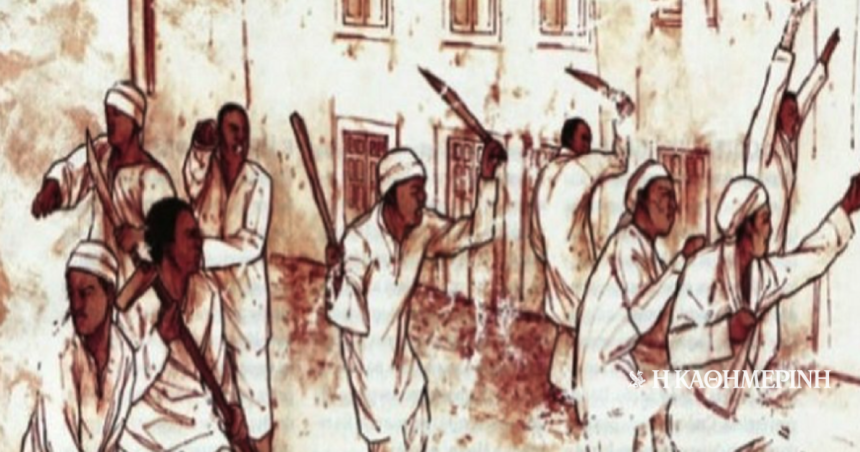During the first decades of the 19th century, in the Brazilian province of Brazil, many slave uprisings occurred. Among them, the most important in Brazilian history was the Rebellion of malêa religious and racial uprising against slavery and the dominant role of the Catholic religion, which was led by the African Muslims.
Salvador, the capital of Baia, was the first city founded in Brazil by Portuguese noble Tome Di Souza in 1548. In 1835 it numbered 65,000 inhabitants, of which 40% were slaves or liberated. The population of African descent was characterized by diversity in culture and origin, and included people of Islamic religion. These Muslims, the imalê, They knew how to read and write ArabicIn addition, many of them were skilled craftsmen, such as shoemakers, blacksmiths or carpenters. In the Brazilian colonial environment, these abilities made them stand out and have specific privileges. They could be circulated in the city with freedom (which does not mean that they did not fall victim to racism and violence), and in some cases, saving small amounts, they were able to redeem their freedom.
But they did not suffice in them. They held meetings to prepare a rebellion and raised money for weapons. Some scholars, in fact, argue that maltered, as they were finally known, intended to establish an Islamic Nation And to enslave all non -Muslims regardless of color. However, they had no appeal to the entire African population of Baia. Only one small part of traditional African religions were in favor.
The uprising was scheduled to start the day of the “Glory Night” festival, when the Koran’s revelation to Mohammed was honored at the end of Ramadan. Eventually, however, the leaders of the uprising were betrayed and on the night of January 24th they ambushed military forces. Immediately they responded by fire. Six hundred rebels took to the streets of Salvador and attacked the barracks that controlled the city. However, due to their lower armaments and the numerically superior infantry with which they were confronted, they were slaughtered by the National Guard, the Police and many white men who had taken the streets to suppress the uprising.
In her aftermath, 200 slaves were taken to the courts, where they were sentenced to various sentences: imprisonment with work, whipping, death and deportation in Africa. Everyone was tortured wildly, some even to death. More than 500 Muslims Africans were expelled From Brazil, while many suspects were deported without any definitive evidence of their involvement in the uprising.
Despite these developments, the uprising had a huge impact on the country. Insecurity and panic had occupied Baia’s ruling elite and soon spread to other parts of the country. Over time, the uprising has taken an important place in the press, with many newspaper headlines dedicated to it and its consequences, resulting in other conflicts in other areas of Brazil.
To this day its memory remains alive, with the musical and cultural band Malê debalê To embody its legacy, especially during the carnival period, where its members march on the streets of Salvador with a different message each time: social, political, cultural.
Column Curator: Myrto Katsiera, Vassilis Menakakis, Antigoni-Despina Poumenidou, Athanasios Syroplakis




